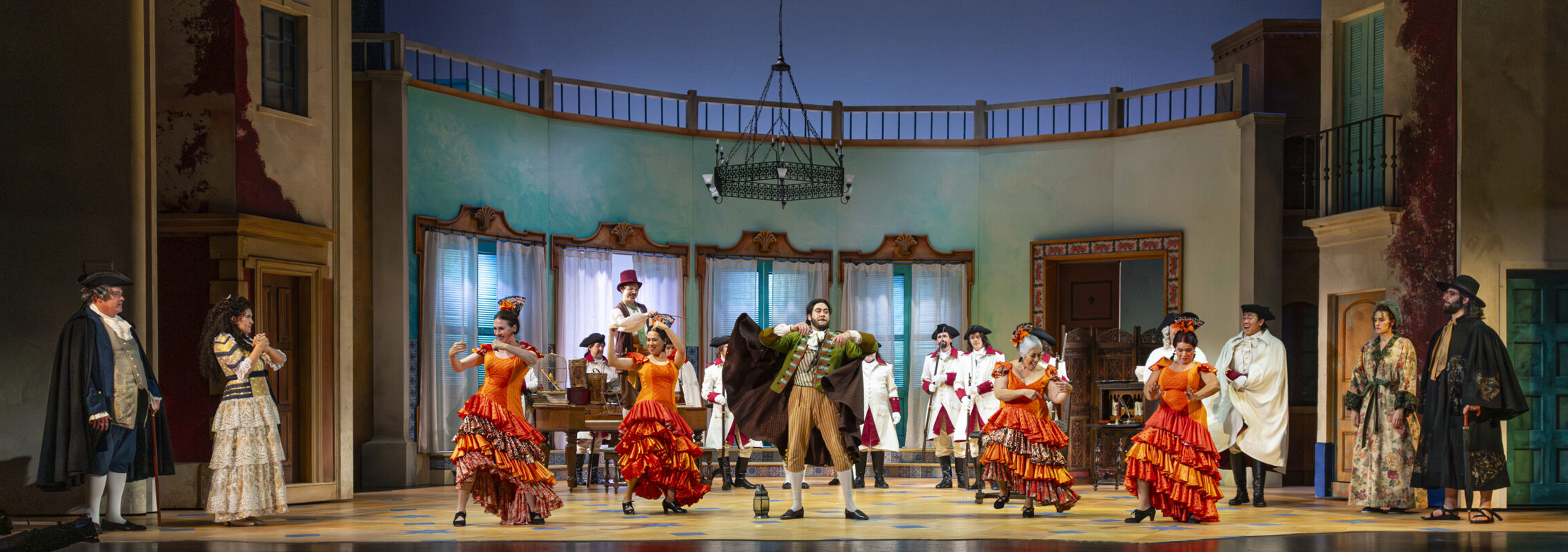
Want to view this page in a different language? Click the blue icon at the bottom of this page.
¿Quieres ver esta página en otro idioma? Haz clic en el icono azul al final de la página.

Opera Outdoors audience members get special access to this season’s tickets!
Use promo code OUTDOOR25 to receive 25% off all single tickets
Offer expires Friday, September 12.

Opening Acts

Opera Omaha has partnered with The Art of Imagination, the performing and visual arts program of Ollie Webb Center, Inc., since 2015. The Art of Imagination’s mission is to empower, develop and encourage self-expression in adults with disabilities through professional opportunities in the visual and performing arts.

The Intercultural Senior Center is a non-profit organization dedicated to enriching senior’s lives and our community. At their location on 5545 Center Street, they welcome diverse adults ages 50 years old and older, to learn, grow and laugh together. ISC offers on-site activities, nutrition, education, exercise, and cultural events.
To fulfill their mission, they depend on contributions from supporters and build valuable partnerships with other agencies such as Opera Omaha. Opera Omaha has been partnering to create programming with ISC since 2019, including HCOF workshops, trips to the opera, and artists visits to ISC.

Gotta Be Me and the Heartlight Choir are all about inclusion and being yourself! Gotta Be Me is a non-profit created to promote the inclusion of individuals with disabilities into our communities, creating a culture that is brimming with life, dignity, and growth - for all people. Gotta Be Me creates opportunities for people with all abilities to come together, to become who they want to be, without limits. Opera Omaha’s Holland Community Opera Fellows have been working with Gotta Be Me since 2018, helping create a rock opera, concert performances, variety shows, and virtual workshops.
Opera Outdoors
“Qui si attenda”
from Maria Stuarda by Donizetti
Opera Omaha Chorus
“La donna è mobile"
from Rigoletto by Verdi
Edward Graves
“Una voce poco fa”
from The Barber of Seville by Rossini
Taylor Raven
“Come scoglio”
from Così fan tutte by Mozart
Meghan Kasanders
“Io so che alle sue pene...Addio fiorito asil”
from Madama Butterfly by Puccini
Edward Graves, Taylor Raven, Hayden Samuel Smith
“Patria oppressa”
from Macbeth by Verdi
Opera Omaha Chorus
“Deh! Tu di un’umile preghiera”
from Maria Stuarda by Donizetti
Meghan Kasanders, Opera Omaha Chorus
“In un coupé?...O Mimi, tu più non torni”
from La bohème by Puccini
Edward Graves, Hayden Samuel Smith
“Mira, o Norma”
from Norma by Bellini
Meghan Kasanders, Taylor Raven
“Hai gia vinta la causa!”
from Le nozze di Figaro by Mozart
Hayden Samuel Smith
“Seguidilla”
from Carmen by Bizet
Taylor Raven
“To This We’ve Come”
from The Consul by Menotti
Meghan Kasanders
“Make Our Garden Grow”
from Candide by Bernstein
Company
Join our mailing list
Sign-up for our email list and never miss an OPERAtunity to learn about promotions and upcoming events.
Support opera of, by, and for Omaha and beyond
Donors like you empower us to showcase ambitious, innovative productions of the highest quality and lead the charge to celebrate, serve, and advocate for our community. Your generosity enables us to stay curious, spark inspiration, center humans, and lead responsibly in all that we do.








